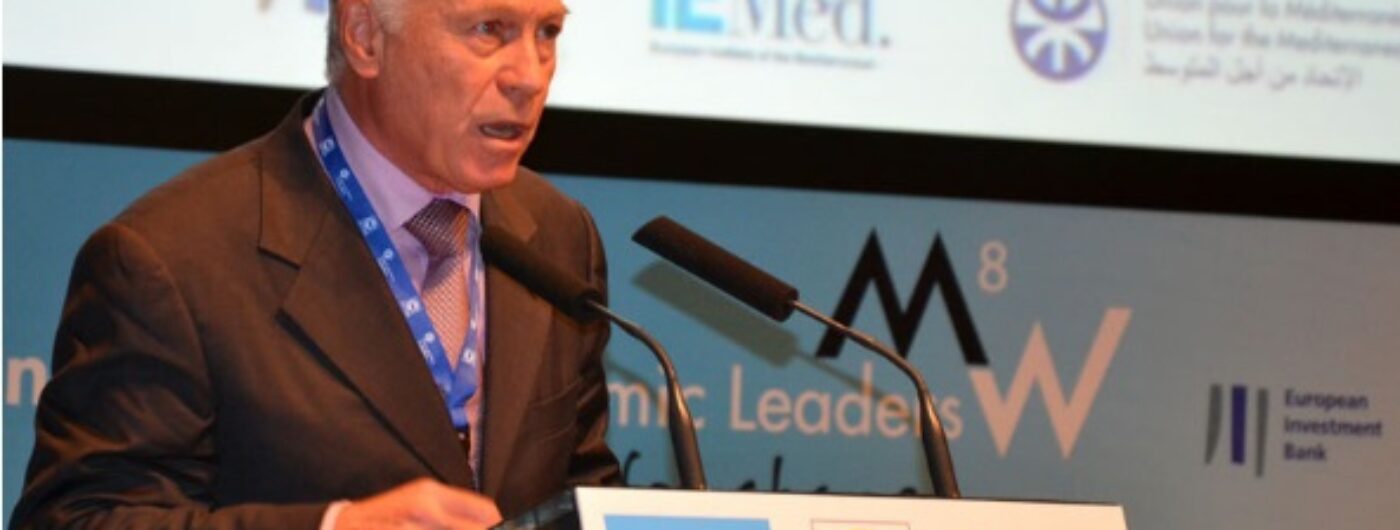
UfM participates in the 8th Mediterranean Week of Economic Leaders, “A need for change”, on the green economy as a driving force for regional development
Barcelona, 28 November 2014 – The Secretariat of the Union for the Mediterranean (UfM) actively participated in the eighth edition of the Mediterranean Week of Economic Leaders, entitled “A need for change”. This year it focused on the green economy as a main driving force for the development of our region. The three-day conference took place in La Llotja de Mar, in Barcelona, from 26 to 28 November.
The Mediterranean Week of Economic Leaders is one of the Mediterranean region’s main economic events, bringing together business people, governmental entities from the region and representatives from international and regional institutions in order to discuss and promote Euro-Mediterranean cooperation and integration as a core factor for the region’s economic and social development. It was organised by ASCAME and the Barcelona Chamber of Commerce, Industry and Navigation, with the collaboration of the Union for the Mediterranean (UfM), the European Institute of the Mediterranean (IEMed), the European Investment Bank (EIB) and other institutions involved in the Mediterranean project.
Claudio Cortese, Senior Deputy Secretary General of the Union for the Mediterranean, delivered a speech during the opening session of the eighth edition of the Mediterranean Week of Economic Leaders, in which he underlined that “tackling high unemployment – which is particularly severe among young people and women – and economic regional integration are the major challenges in the region. Therefore, concrete actions, tangible results on the ground and projects with a real impact on citizens’ wellbeing are paramount”. “For this reason, it is crucial that all the different actors, initiatives and cooperation schemes operating in the region act in coordination. We must then make full use of the synergies and complementarities between all stakeholders,” concluded Claudio Cortese.
During the I Summit of Free & Special Economic Zones, held on 26 November – which aimed to discuss the strengths and weaknesses inherent to the free zones in the region and establish guidelines for a programme of action – Salvatore D’Alfonso, Transport and Urban Development Division project manager, stated that “a possible way to promote and develop the existing nexus between free zones and the LOGISMED-TA EIB initiative, already flagged by UfM, is to create a ‘core’ network of Mediterranean exemplary free zones, where special resources could be concentrated with the aim of stimulating the establishment of small and medium-sized companies and developing added-value services, as well as training and networking”.
UfM’s Deputy Secretary General for Energy, Teresa Ribeiro, participated in the “Solar Energy – Tapping the Economic and Environmental Benefits for the Mediterranean Region” conference within the framework of the Mediterranean Solar Forum held on 27 November. Ribeiro presented the UfM Secretariat’s work and activities in the field of renewable energy, energy efficiency and climate change, based on the enhancement of regional dialogue and the promotion of projects in the Mediterranean region. During her intervention, Teresa Ribeiro stated that “energies, mainly solar and wind, are abundant in the Mediterranean region and the MENA region boasts unique solar resources, but only 4% of the electricity produced in the region comes from renewable sources”.
Closing the Global Eco Forum held on 28 November in Barcelona, Naser Tahboub, UfM’s Deputy Secretary General for Environment and Water, stressed the Secretariat’s commitment to fulfilling its mandate in bringing together relevant actors, and serving as a multi-stakeholder platform in an effort to step up efforts on the environmental agenda in the coming years and, in particular, its commitment to the second and strengthened phase of the H2020 Initiative to De-pollute the Mediterranean Sea.

